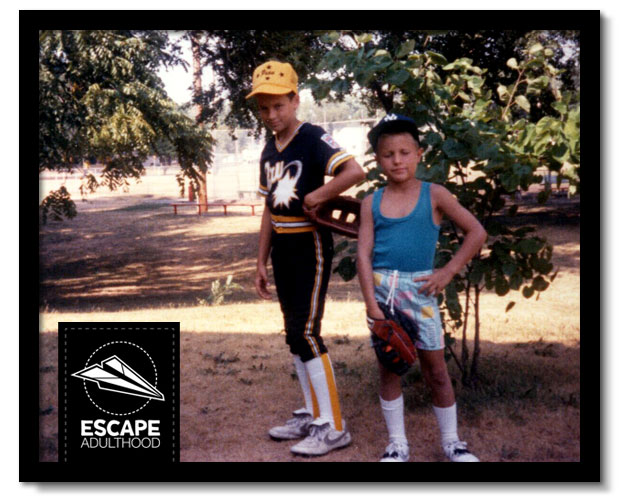
When I was twelve years old, I had a fastball you wouldn’t believe.
That is, you wouldn’t believe anyone would call it a “fastball” if you saw how slowly it traveled.
I had great control, rarely walking anybody, but I had no curveball, no slider, no screwball…just a not-so-fast fastball and a change-up that defied the laws of physics by being even slower. I swear I saw batters salivating while they were on deck.
I did make the All-Star team that year, but not for my pitching acumen. My team never won a game while I was on the mound. One time, I got hit in the leg by a line drive that was hit so hard, it tore a hole in my sock. If you’re imagining Charlie Brown getting knocked off the mound, you’re on the right track. The only difference is that I had more hair.
Then, when I was thirteen, I advanced to a new league and got a new coach: Mr. Dawson. For some reason, he kept using me as a pitcher and seemed to make it a personal mission to get me my first win. He was so encouraging, I started to believe that it was possible.
And lo and behold, as the season was winding down, it happened. Our team won the game with me as the official winning pitcher. I don’t remember the score of the game. I don’t remember where it happened or who it was against. But I do remember how proud Mr. Dawson was, and how good it made me feel to reward him for all his encouragement and belief in me. And that confidence he instilled in me lasted long after my pitching career ended.
I heard once that the devil’s favorite weapon is discouragement.
I remember thinking how unimpressive that sounded. Surely there were higher profile, more obviously devastating, headline-grabbing tools at his disposal. Discouragement? It sounded pretty wimpy to me.
I’ve now come to see it as a colorless, odorless, poison: completely untraceable and devastatingly lethal.
Dictionaries define discourage as “depriving of courage or hope; to cause someone to lose confidence or enthusiasm.” When you consider that the roots of the word “enthusiasm” are “en” and “theos,” which means “God within,” you can begin to see how destructive discouragement really is.
It is scattered by the enemy like invisible seeds, taking root and sprouting into cynicism, choking out hope. Our inner monologue is fed an unending stream of discouragement every day, as lies masquerading as truth:
You failed. That means you’re a failure.
You’re not making any progress.
You don’t have what it takes.
You shouldn’t even bother.
You’re kidding yourself.
Who do you think you are?
What difference will it make?
Why bother trying?
You’re hopeless.
Any of those sound familiar?
You can reach the point where you’ve been bombarded by so much discouragement, it becomes a habit to look for evidence proving discouragement right, blinding you from opportunities to prove it wrong.
When hope is snuffed out…it’s game over. And the devil wins.
This is why encouragement is one of the most powerful weapons we have at our disposal. Mr. Dawson used it with remarkable results, as did every other great teacher and mentor I’ve had in my life. Their encouragement gave me fuel to keep going until I could eventually see the truths about myself they saw first. If you’re sincere, it’s practically impossible to overdo it.
Each day is a mixture of good and evil. Encouragers are there to remind us of the reasons for hope.
And you don’t need to have any real skill to wield it. You don’t need to wait until you have it all figured out. You don’t even need to be free from discouragement yourself. In fact, one of the best ways to strike out your own discouragement is by encouraging someone else.
It’s possible to change someone’s life. Most of the time it starts with changing their day first.
Who needs a word of encouragement from you today?